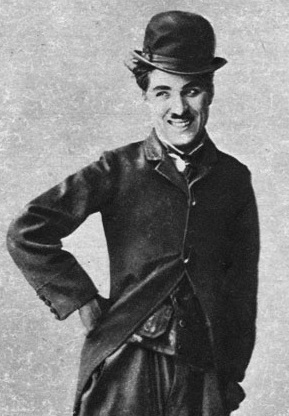Apparently trigger warnings were not enough to save the cinematic legacy of the silent film star Charlie Chaplin. Streaming services, globally, have removed all of Mr. Chaplin’s work from their catalogs, as have other media entities.
The remarkable six-day period which culminated in Mr. Chaplin’s erasure from motion picture history began with students at Antioch College protesting the actor’s mustache.
Sophomore Bethany Schwartz-Kennedy allegedly had a panic attack during a classroom showing of “The Little Tramp” in her Introduction to Media Oppression class.
“I was just, like—” Ms. Schwartz-Kennedy said, hand fluttering over her chest. “He had this, y’know, mustache! And I was like, that’s just like, y’now, that . . . guy! Y’know the guy who did that bad thing? He was like Dutch or something? It was during one of those wars. I think.”
In spite of the fact that Antioch immediately fired the graduate student teaching the class and instituted a policy of requiring trigger warnings on all syllabi which in any way touch on Chaplin’s work, student outrage rapidly spread both to other campuses and to other aspects of Mr. Chaplin’s work and persona.
“My comfort-cat has hip dysplasia,” fumed Yale Senior Bobi Kanagawa-Jones. “That’s a serious thing! And I was made very uncomfortable by the way Chaplin walks. Like he was directly mocking my cat’s alt-ableness—just like President Trump and that journalist guy!”
On some campuses the injured parties were vegans, incensed at a scene in which Chaplin eats a shoe.
At Harvard, seven students remain hospitalized, two in critical condition, subsequent to amputations, after a shoeless march, through a foot and a half of snow, which culminated in some hundred and fifty students standing outside the windows of the president’s office, chanting, “Leather is Murder!”
Outside academia, advocates for the homeless argued that Chaplin’s regular depiction of the undomiciled as objects to be made fun of constituted a blatant and unacceptable violation of human rights. In solidarity with this position, cinema faculty at Evergreen State College replaced the program’s webpage with a black screen, emblazoned with the words “Poverty is Not Funny,” pledging not to take it down until Chaplin’s work was banned.
The capitulation of the media companies was not long in coming.
There were celebratory bonfires on campuses across the country this weekend, in which tapes, discs, books, and magazines featuring Mr. Chaplin were burned—along with a range of other articles that made students feel “unsafe.”
“I hope people really learn from this,” Ms. Schwartz-Kennedy said, molten plastic smoking and crackling behind her, sparks from the Antioch bonfire streaming skyward. “You can’t just, like, bring people into contact, whatever, with, like, stuff they don’t like. That’s just not right. This is America!”

